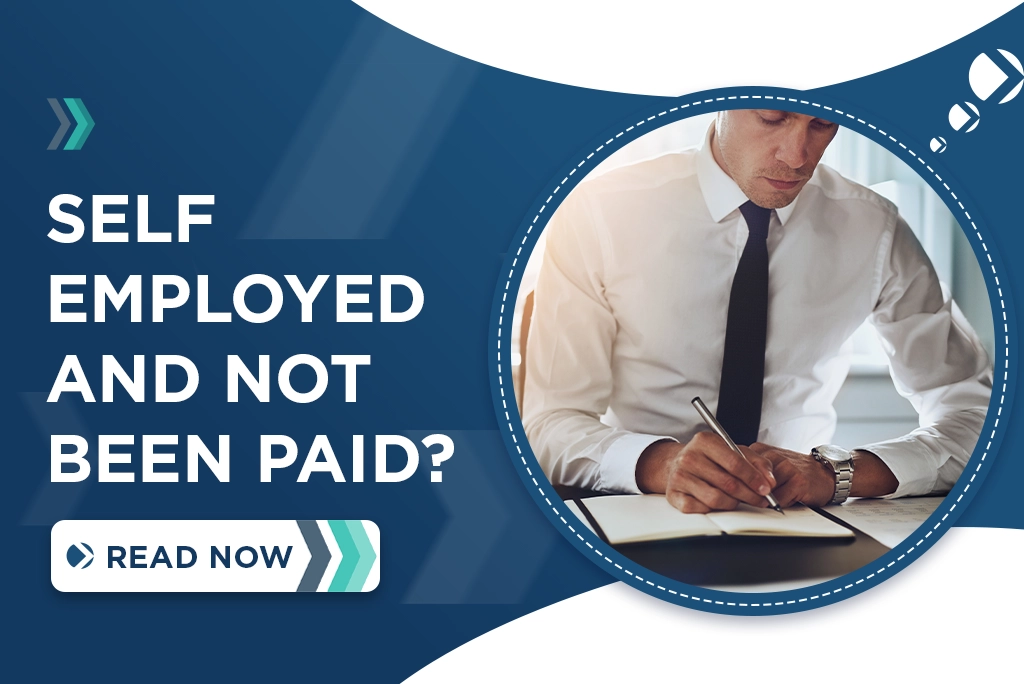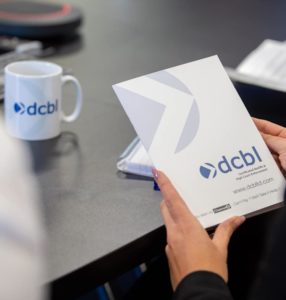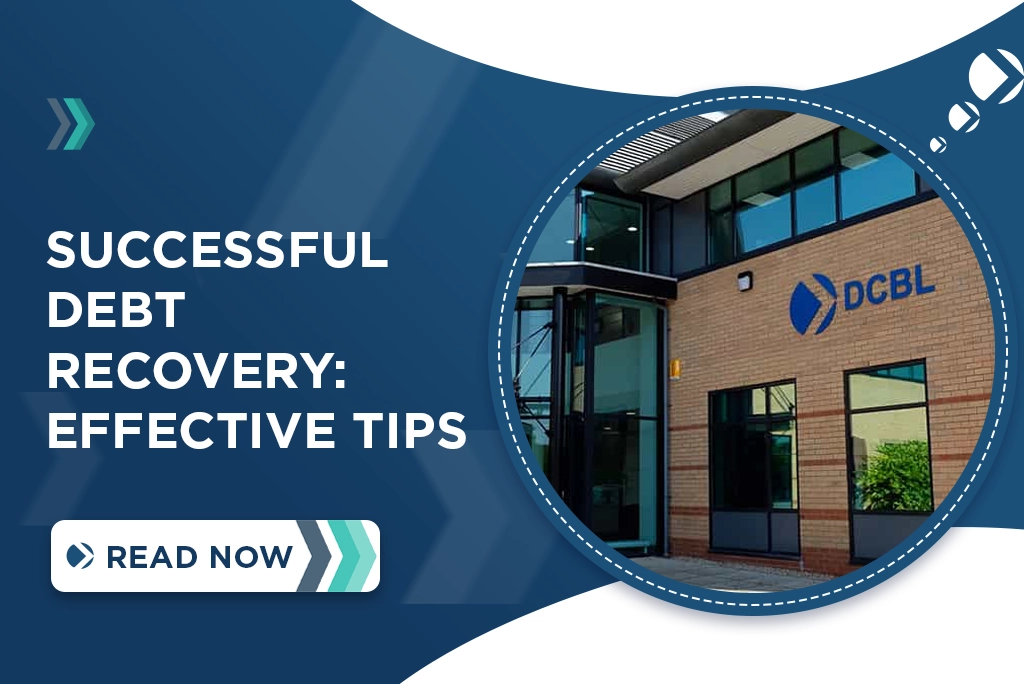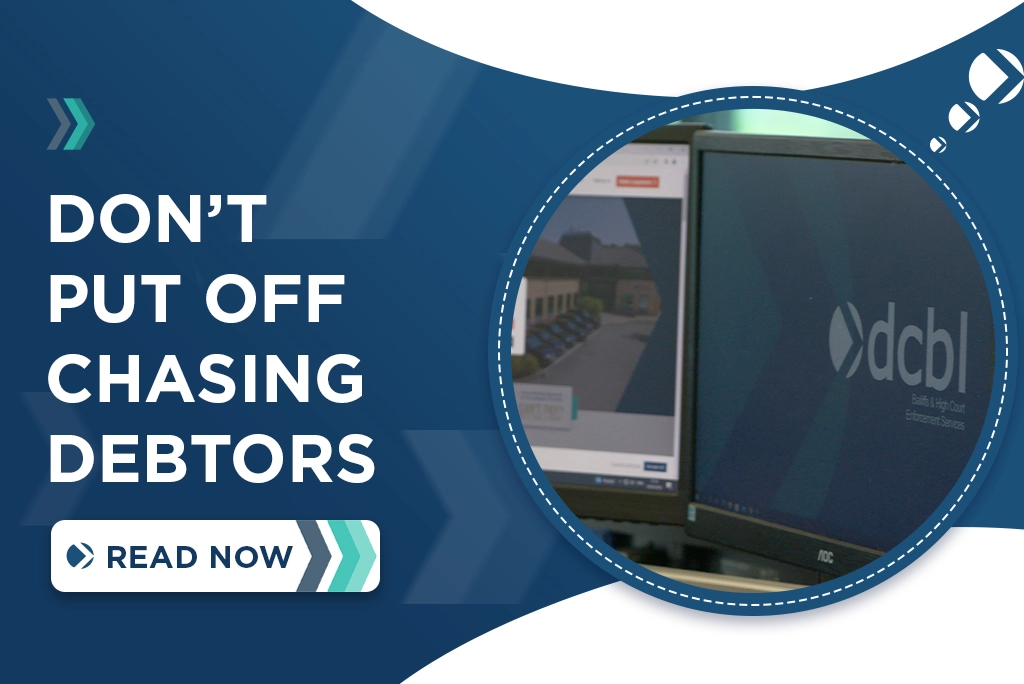
Self Employed and Not Been Paid? – How DCBL Can Help
22nd June 2022
Self-employed and not been paid for goods or services you have provided? Are outstanding invoices not getting paid occurring on a regular basis? At DCBL, we are aware of the stress that this can cause you and, as such, have produced this guidance.
Self Employed and Not Been Paid? – Contents
- Top 5 Recovery Tips – Self Employed and Not Been Paid
- Self-Employed and Not Been Paid – Frequently Asked Questions
In an ideal world, a self-employed contractor would provide service and expect to be paid for this upon completion. The non-payment of invoices, especially for self-employed individuals, is sadly common in daily business.
IPSE recently spoke to 1,000 self-employed people and half of these said they completed work but were never paid.
Being self-employed is challenging at the best of times, and when someone does not pay, this can increase the pressure. Not only is it normal to expect payment upon completion, but it is vital to maintain a stable cash flow.
Chasing monies owed can be inefficient, as this will take you away from doing what you do best – your job! No small business has ever been able to thrive as a result of ignoring those who are refusing to pay.
As with all money problems, it is important to plan ahead and take measures to ensure your cash flow isn’t harmed.
If you are self-employed and customers owe you money, the best thing to do in this situation is to contact the experts at DCBL. We have recovered millions of pounds on behalf of self-employed individuals since our start in 2001.
However, following our Self-Employed and Not Been Paid guide will help prevent financial difficulty.
Are You Self Employed and Not Been Paid in 2023?
As a self-employed individual, it is important that you recover any unpaid invoices as soon as possible after you notice them.
Additionally, the longer you leave money that is owed the more the debtor will believe they do not have to pay – this is not (and never will be) the case!
A survey that was conducted by NedWallet has stated that 55% of businesses still have outstanding invoices from 2022/2023 year.
If you leave the recovery of your invoices, you could be part of this number. Don’t become apart of a statistic – get in contact with us today.
Follow the steps below to successfully recover money if you are in any of these situations:
- Self Employed Not Getting Paid for Work Done
- Not Paid for Work Done Self Employed
Top 5 Recovery Tips – Self Employed and Not Been Paid
We understand the pressure that unpaid invoices and owed money can put on self-employed individuals. Stress that results from these situations is bound to make you angry, but it is important that you stay calm.
Be sure to follow this guide to maximise the chances of you successfully getting the money back that is owed. At DCBL, we only provide our clients with constructive and effective advice that will form a positive outcome.
1. Planning Ahead if Not Paid for Work Done Self-Employed
Ideally, every business should have a clear plan on what to do when money is owed by one of their associates. This is obviously not a nice thing to plan for, but will inevitably help in the future should invoices go unpaid.
Planning ahead will increase the chances of successful debt recovery, whilst reducing the stress of chasing payment.
This can look like collecting all relevant documents, having payment plans ready and creating an action plan for recovering unpaid fees.
You should collect as much information about the person that owes you money as possible, including:
- Name of the debtor
- Current and any previous addresses (of the debtor)
- The amount of money owed
- Invoice payment due dates
Gathering all this information will make it easier for DCBL to progress with your case, should this have to be escalated.
2. Establish Payment Terms
Payment terms outline how much is to be paid, on which date and any repercussions if payment is not made. The payment date of an invoice is usually 30 days or 60 days, depending on the relationship with the customer.
This is something that is seen more commonly within businesses that have a dedicated credit control or accounts team.
Getting the customer or client to sign the written agreement will mean they are fully aware of any consequences. Establishing payment terms has been known to deter problematic customers from refusing to pay what they owe.
3. Communicate With the Debtor
Like in most situations, communication is key and can be the difference between a positive or negative resolution. As soon as you are aware that money is overdue, we recommend that you communicate with the debtor to request payment.
We understand that this can seem like a “pushing tactic” in most cases, however, there is nothing wrong with chasing. After all, you are rightfully owed the money that the debtor is withholding from you.
Communicating through emails, letters and phone calls will provide you with a good indication of whether they will pay. It is easier to ignore emails or letters as if a phone call has been dismissed, this is far more apparent.
If the person that has not paid you does not reply to your communications, this should then be escalated.
4. Don’t Hesitate to Escalate It Higher
Being in a “self-employed and not been paid” position can leave you feeling like you have nowhere to turn. This is especially true if all communication with the debtor has been ignored or resulted in a negative position.
In addition, there are many ways that you can try to recover the debt, including court action or using a debt collection agency.
At the end of the day, you are rightfully able to conduct the debt recovery in whatever manner you see fit.
If you have tried all of the above and they are still refusing to pay, it is time to speak to the experts. This gives you the best chance at recovering the money and will allow you to focus on your business.
5. Speak to The Experts at DCBL
DCBL are the leading debt recovery company in the UK and has helped thousands of self-employed individuals recover their money.
No matter the industry you provide services in, we can get your money back in an affordable yet effective manner.
If any cases need to be advanced, we will pass this over to our sister company, DCB Legal, to handle the legal aspects. This allows us to provide you with a multi-channel, effective debt collection strategy that maximises the chances of getting your money back.
After all, our Debt Recovery service, which recovers millions of pounds per year, has a proven 98% client retention rate.
As soon as you realise you are self-employed and not been paid, you should contact our specialists. Do not hesitate to get in contact with us as this could impact the retrievability of the debt and we may miss the opportunity of resolution.
Click here for a free debt recovery quote for your unpaid self employed fees.
Self-Employed and Not Been Paid – Frequently Asked Questions
Self employed not getting paid for work done, what should I do?
If you are self-employed and someone owes you money, the first thing you should do is contact the debtor as they may have a genuine reason for not paying. If they are deliberately ignoring you, there are many different ways you can go about recovering debt.
What is the best method for collecting a debt?
Whilst there are several ways that debts can be recovered, the most beneficial option is to choose DCBL to recover it. Our debt recovery process and high levels of early engagement are proven to achieve unrivalled collection rates.
What is the debt recovery process?
Upon instruction, DCBL will carry out data verification and advanced tracing to find the debtor and then commence the recovery process. Should the debtor fail to respond, we will utilise other engagement channels to communicate with them and successfully collect the debt.
What happens if the debtor’s details have changed?
Should the details of the debtor change, such as an address, phone number, name etc, we will utilise our expert tracing system to successfully locate the debtor and contact them.
What is the best way to contact a debtor?
It is always recommended to contact a debtor first via email or text, as this creates a paper trail should you have to refer back to this in future. If this fails to produce a result, you should ring them as this is harder to ignore than an email.










